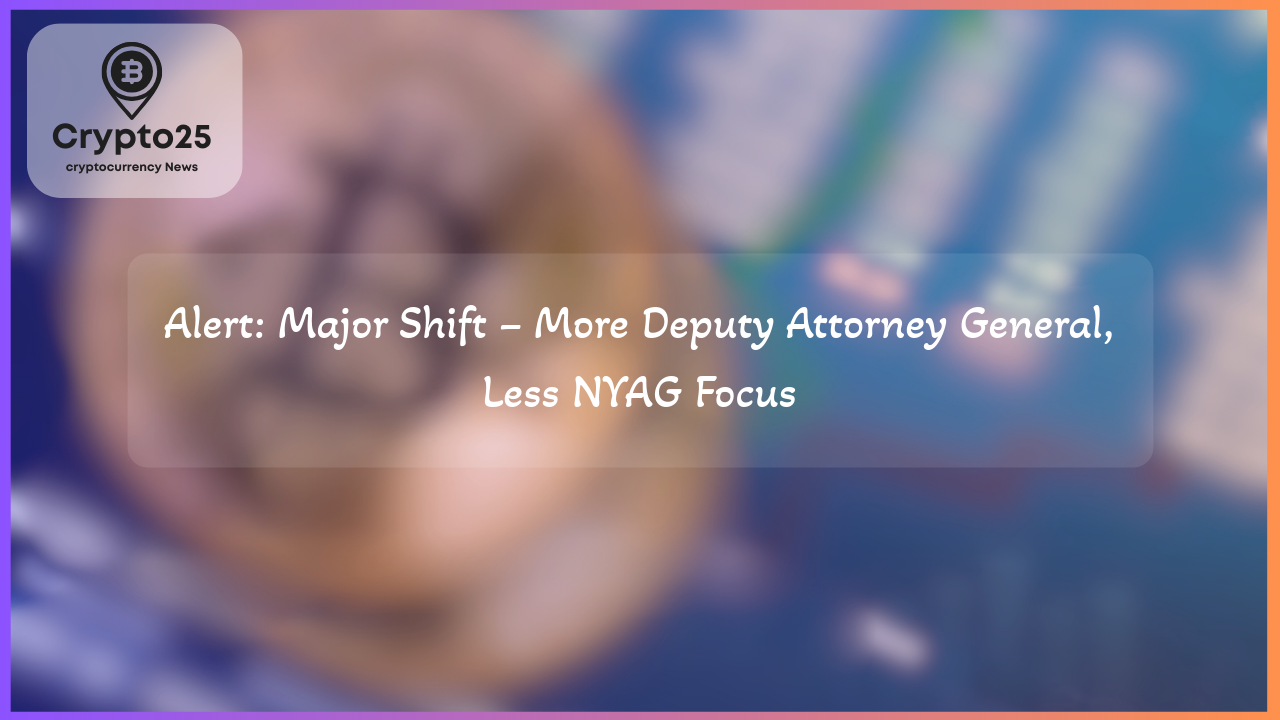
The increasing intersection of cryptocurrency and regulatory efforts remains one of the most critical discussions shaping the future of digital assets. Recent announcements from U.S. legal authorities highlight a growing debate over how Bitcoin mixers and privacy-focused technologies should be treated under federal law. This divide brings to light the tension between financial privacy and efforts to combat illicit activities in the crypto space.
## The Department of Justice and Its Changing Stance on Bitcoin Mixers
In a groundbreaking memo titled “Ending Regulation By Prosecution,” Deputy Attorney General (DAG) Blanche announced that the Department of Justice (DOJ) will no longer actively prosecute Bitcoin mixers and related privacy-enhancing services for the activities of their end users. This shift represents a significant departure from earlier harsh enforcement strategies targeting cryptocurrency mixers, tumbling services, and offline wallets. Blanche emphasized that such entities should not be held accountable for violations unknowingly committed by users, signaling a more measured approach to crypto regulation.
This announcement holds profound implications for the broader crypto ecosystem. Bitcoin mixers, which anonymize transactions, are often criticized for enabling illegal activities. However, they are also valuable tools for users seeking privacy in an increasingly surveillance-heavy financial world. Blanche’s memo acknowledges this duality, leaving room for legitimate use cases such as protecting individual financial privacy and supporting activists in oppressive regimes.
| Title | Details |
|---|---|
| DOJ Memo | Ending Regulation By Prosecution |
| Key Focus | Legal Treatment of Crypto Mixers and Wallets |
| Market Impact | Potential Support for Privacy Enhancing Tools |
## Criticism from the New York Attorney General on Bitcoin Privacy
While the DOJ’s position signals progress in protecting users’ privacy rights, New York Attorney General (NYAG) Letitia James offered a contrasting perspective. In a letter to congressional leaders, James called for stricter federal legislation targeting cryptocurrency mixers and platforms. She underscored the potential for these tools to facilitate illicit activities, framing privacy-enhancing technologies as “money laundering mixers.” According to James, cryptocurrency services must fully comply with stringent anti-money laundering (AML) and Know Your Customer (KYC) regulations to prevent misuse in financing terrorism and criminal activity.
James’ rhetoric raises concerns among advocates of financial privacy and decentralized systems. By broadly categorizing cryptocurrency mixers as tools for illegal activity, such statements overlook their legitimate use cases. Journalists, human rights activists, and organizations operating under regimes with limited freedoms often rely on crypto mixers to secure their identities and safeguard donor information. Critics argue that James’ approach risks undermining individuals’ right to privacy in the name of enhanced oversight.
## The Impact of Privacy Debates on the Future of Bitcoin and Crypto
The ongoing debate around Bitcoin mixers highlights the tension between privacy and regulation in the cryptocurrency ecosystem. While the DOJ has taken a more lenient approach, NYAG James has doubled down on strict regulatory measures. For individual users and institutions alike, this discrepancy underscores the need for balanced policies that support transparency without compromising fundamental privacy rights.
Additionally, ongoing cases like Samourai Wallet and Tornado Cash will have far-reaching implications for privacy-focused technologies. These cases will likely set legal precedents for future regulations governing the use of Bitcoin mixers and similar services. As the fight for financial privacy intensifies, the crypto community must remain active in these discussions, ensuring that policies reflect the values of decentralization and individual rights that underlie blockchain technology.
The general public plays a crucial role in shaping these policies. Engaged individuals can amplify balanced rhetoric, such as Deputy Attorney General Blanche’s acknowledgment of privacy tools, while challenging divisive statements like those from NYAG James. At a time when governments are increasingly scrutinizing cryptocurrency, ensuring that user privacy is maintained will require collective action across global communities.
### Final Thoughts on the Bitcoin Privacy Debate
As crypto regulations evolve, the debate surrounding Bitcoin mixers represents a pivotal challenge for the industry. Both regulators and the crypto community must find ways to balance concerns around illicit transactions with the fundamental right to financial privacy. While DAG Blanche’s memo offers hope for more considerate regulation, opposing voices like NYAG James highlight the continued need for public advocacy. By remaining engaged in this discourse, we can champion a future where privacy and innovation coexist harmoniously.
